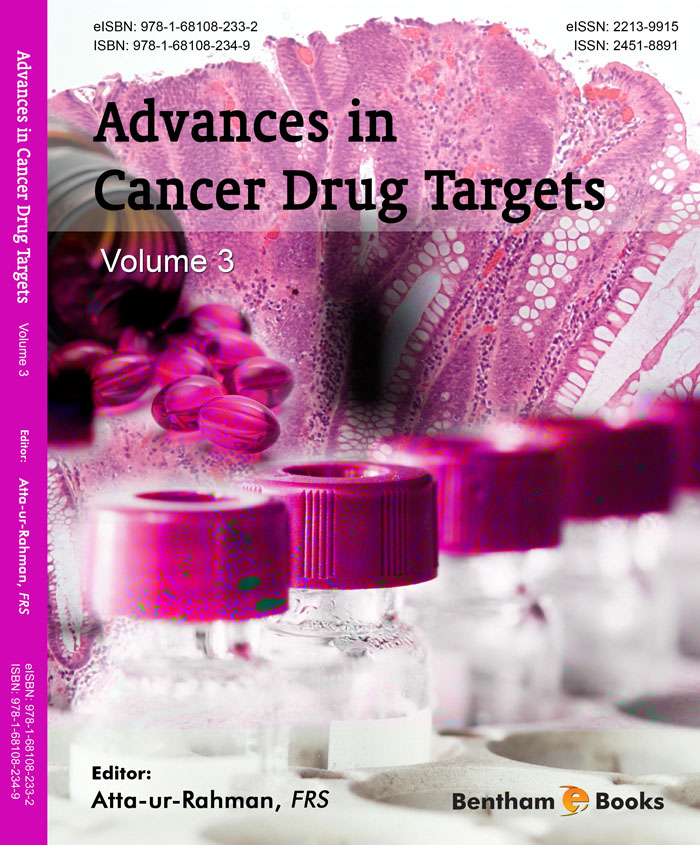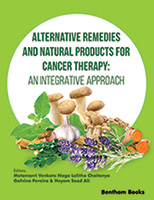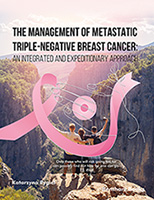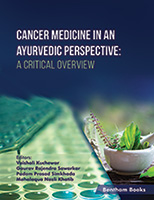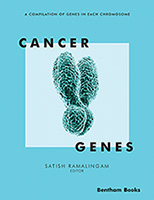The 3rd volume of the book Series “Advances in Cancer Drug Targets” comprises eight
chapters written by the leading experts in this field. It is an outstanding collection of well
written chapters on cancer drug targets in the field of pharmacology, molecular biology and
biochemistry.
Human neutrophil elastase (HNE) plays an important role in the development of chronic
obstructive pulmonary diseases. In chapter 1, Alix et al., explain its involvement in non-small
cell lung cancer progression. Natural compounds and/or synthesized agents which antagonize
HNE activity have been comprehensively reviewed in this chapter. They also focus on
substances (i.e. lipids and derivatives, phenolics) that exhibit an inhibitory bifunctionality
towards HNE and matrix metalloproteinases (MMPs), particularly MMP-2.
The efficacy of cancer-immunotherapy with complement-activating monoclonal antibodies is
restricted by over-expression of one or more membrane-bound complement regulatory
proteins (mCRPs: CD46, CD55, CD59) that are present on the surface of neoplastic cells.
Kirschfink et al., in chapter 2 discuss small interfering RNAs (siRNAs) for posttranscriptional
gene knock down of CD46, CD55 and CD59 aiming to sensitize tumor cells.
Hepatocellular carcinoma (HCC) is the third most common cause of deaths from cancer
worldwide. There is growing evidence that the deregulation of Wnt/β-catenin signaling
pathway plays a critical role in hepatic oncogenesis and mainly occurs at the early stage of
hepatocarcinogenesis. In chapter 3, Kim and Wands have summarized the potential molecular
targets related to the Wnt/β-catenin signaling pathway along with their therapeutic
applications.
A major challenge in treating ovarian cancer is to overcome intrinsic and acquired. Chapter 4
by Ahmed et al. presents the recent advances in our understanding of the cellular origin and
the molecular mechanisms defining the basis of cancer initiation and malignant
transformation with respect to epithelial-mesenchymal transition (EMT) of ovarian cancer
cells.
Due to the high expression of Survivin in various carcinomas, it is one of the key antiapoptotic
proteins. It is also associated with their biologically aggressive characteristics and
drug resistance. Bisen et al., in chapter 5 elaborate the efficacy of combination of oxaliplatin
and paclitaxel as a potential strategy in controlling HNSCC cell proliferation. This review
highlights the fact that the co-treatment of cells with paclitaxel and oxaliplatin results in a
significantly higher cytotoxicity as compared to individual single drug treatment.
Melatonin has oncostatic effects on different neoplasias, particularly on estrogen-dependent
breast cancer. The compound acts by interacting with estrogen-responsive pathways, thus
behaving as an antiestrogenic hormone. In chapter 6 by Cos et al., evidence is presented that
that melatonin could exert its antitumoral effects on hormone-dependent mammary tumors by
down-regulating the sulfatase pathway of the tumoral tissue.
Recent studies have thrown light on the role of mammalian target of rapamycin (mTOR) in
the regulation of tumor cell motility, invasion and cancer metastasis. Zhou and Huang in
chapter 7 discuss the mTOR complexes and the role of mTOR signaling in tumor cell
migration and invasion. The chapter also highlights the findings about the mechanism by
which rapamycin inhibits cell migration, invasion and cancer metastasis.
It has been hypothesised that a phenyl hydroxylamine group linked to a second aromatic
moiety generates a pharmacophore which can interact with Ras and inhibit its activation In
chapter 8, Peri et al., present reports on the synthesis of a library of small molecules with
arylamides and arylsulfonamides groups. They also explain their biological activity to inhibit
nucleotide exchange on human Ras.
I hope that the current book volume, which provides insights into the development of new
approaches to anti-cancer therapy for interested researchers and pharmaceutical scientists, will
be received with the same enthusiasm as the previous volumes of this Series. I am grateful to
the valuable contributions made by the authors. I greatly appreciate the assistance from the
editorial staff, particularly Mr. Mahmood Alam (Director Publications) and Mr. Shehzad
Naqvi (Senior Manager) for their hard work and determined efforts.
Prof. Atta-ur-Rahman, FRS
Honorary Life Fellow
Kings College
University of Cambridge
UK

